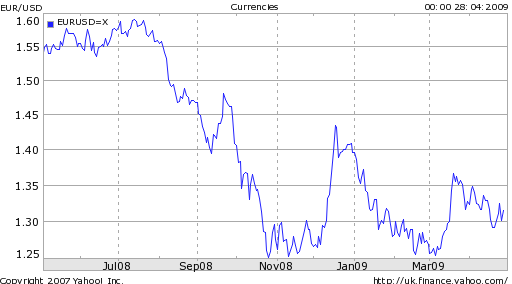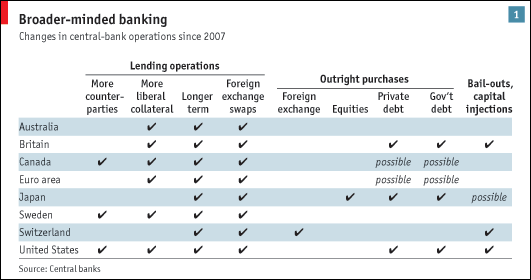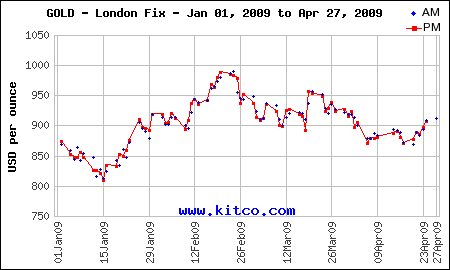1. Ask friends and colleagues for references. You may not have the luxury of having a trusted person to ask their advice on a broker. If you do, take advantage of that resource. A personal recommendation can cut way down on your research time and help you avoid making a bad decision.
If the same broker is recommended more than once, obviously you will want to take that into consideration. You might decide to look no further.
2. Do online research. The internet is an excellent research tool, and you should use it to locate several contenders to serve as your broker. Compile a list of brokers that look promising, and make a comparison chart to easily compare "apples to apples".
3. Using your comparison chart, select the three or four brokers that seem to most closely match your needs.
Some brokers will naturally appeal to the needs of certain traders more than others. One potentially important factor is the number and usefulness of the "helps" that each offers. Does the company maintain a forum, and is it actively used? Does the trading interface seem easy to use? What sort of research tools do they offer, if any?
4. Once you have narrowed down your list, do further investigation on your final contenders. Consider calling them on the phone. Ask yourself if they offer enough services to help you with your forex business. Request a free trial so you can get to know their company; at the very least, ask if they have a demo account for you to try.
If you're not a native English speaker, consider whether or not the broker offers services in your main language. This can become a very important factor in making your decision. As you learn and improve your forex trading skills, you don't want to struggle with a language barrier too.
5. After you have selected your broker, it is not out the question to keep tabs on other brokers. You are not "married" to any given broker that you pick. If you want, you can invest a certain amount of time every couple of months to see if any brokers have expanded their line of services or appeal to your needs better.
After all, you will be spending a considerable of money with the broker, paying for their services through the spread prices, so you will likely want some assurance over time that you are getting the best return on your investment.
Similarly, consider periodically evaluating your experience with your broker. Ask yourself if there any "holes" in the services they have provided to you. Are there any additional services which would help you make better trades? If the answer is yes, that is a clue for specific features you may want to seek out in a different broker at some time in the future.
Selecting a forex broker is one of the most important decisions you make in your forex business, so take the time to do it right.
Start Forex Trading:A Few FX Tips
Forex trading can be rewarding in more ways than one. It can provide a nice part-time income or even give you the freedom to quit your job and work from home. Here are some steps you should take before you begin trading.First, invest some time in learning about forex markets and trading. There are many training guides available, and you should pick up two or three and learn everything you can. Get comfortable with the terminology and calculations.
Second, save up seed capital to begin trading with. If you already have the money on hand, that's great. Resist the urge to borrow from your mortgage money or grocery budget in order to start forex trading. Only invest what you are willing to lose, especially in the beginning when you are learning the ropes.
Third, make sure you have a firm financial foundation. You want to make sure you are making investing decisions based upon sound principles and not because your car payment is due in two days. Rash decisions made out of desperation often end in disaster, so take it slowly and learn how to trade forex before you rely on the money you will earn.
You may need to continue working in your job for a while, until you are comfortable in the forex market and are earning a comfortable income. Or, you may need to go out and get a job, at least part-time. Don't worry, it doesn't have to be forever.
Fourth, decide what your working hours will be. The forex markets are open 24 hours per day, Monday through Friday; you can even work at night if you choose! If you have a job or other time commitments, take those into account as well.
Fifth, select a broker. Many forex brokers are available. Do your due diligence and research each broker that you are seriously considering. Make note of the benefits listed in their advertisements. and construct a comparison chart of the most important features. You can always change brokers later; just make sure your broker's policies and ways of doing business are compatible with yours.
Sixth, once you begin trading, keep a record of your progress. As you do research before making investment decisions, keep track of what you find and why you made specific decisions. Consider opening a Google account; you can use a separate Gmail address for all your forex-related email correspondence, clip web pages with Google Notebook, make notes in Google Docs, and do financial calculations in Google Spreadsheet.
Forex trading is quickly becoming one of the favorite ways that people are supplementing and even replacing their income. The training and tools you need are widely available. Will you be the next successful forex trader?
 The Brazilian currency had the sharpest rise in seven days after the country’s first current account surplus in 19 months was posted this week, pushing the national equities market up.
The Brazilian currency had the sharpest rise in seven days after the country’s first current account surplus in 19 months was posted this week, pushing the national equities market up. The yen hit a 8-week low against the dollar and also lost ground against the euro, as Japanese investors, driven by a new wave of confidence on world markets, return to overseas investments.
The yen hit a 8-week low against the dollar and also lost ground against the euro, as Japanese investors, driven by a new wave of confidence on world markets, return to overseas investments. 


